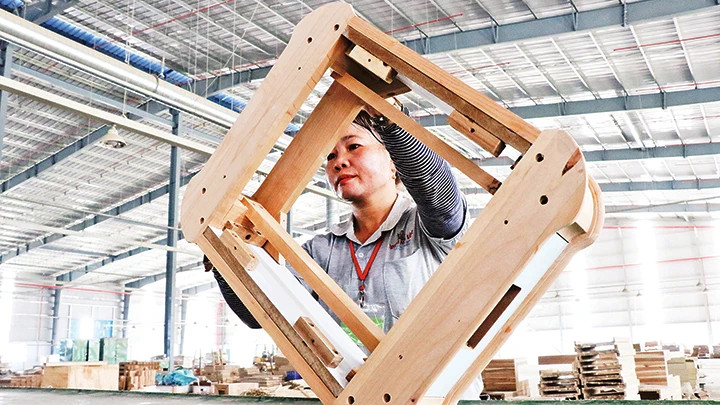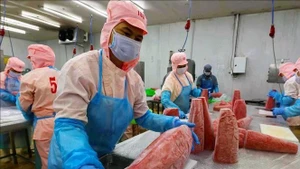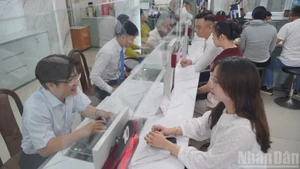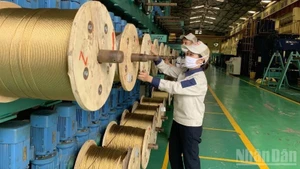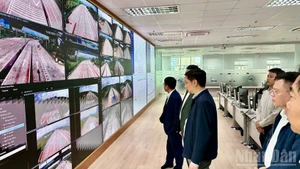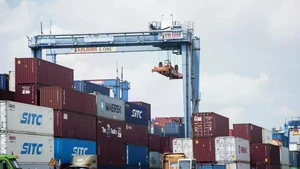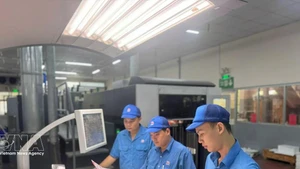Urgently seeking new partners
As one of Vietnam’s key export items to the US market, the Vietnam Timber and Forest Products Association expressed that wood industry businesses are “shocked” by the 46% tariff. This policy, they said, could cause dual damage to Vietnamese enterprises.
However, Vietnam also exports wood products to major markets like Japan, the Republic of Korea (RoK), and China. Therefore, the association promptly met with businesses to devise solutions.
Companies agreed to shift focus to markets such as Japan and RoK. Instead of just exporting individual furniture items, they plan to export complete living spaces and undertake large projects like palaces or high-end buildings by sending both workers and materials to Japan for onsite installation.
Similarly, in the garment and textile industry, the Vietnam Textile and Apparel Association (Vitas) emphasised that a 46% tariff on exports to the US is extremely high and concerning, especially given that garment and textile profit margins are already thin and competition from other exporting countries is fierce.
Thus, Vitas leadership believes it is now crucial to diversify export markets and boost trade with countries that have free trade agreements (FTAs) with Vietnam, allowing for preferential tariff rates.
Nguyen Thi Phuong Thao, CEO of Garment 10 Corporation, noted that implementing this tariff will raise overall price levels and reduce consumer demand. She projected a 10% drop in her company’s orders in the near future.
To respond to these drastic tax changes, Garment 10 has diversified its markets beyond the US, expanding to the EU, Japan, Australia, and other countries. It has also diversified its sourcing of raw materials to reduce dependence on China, particularly as the US intensifies its scrutiny of the origin of Xinjiang cotton products.
Additionally, Garment 10 is boosting efforts to penetrate the domestic market, balancing the ratio of exported and locally distributed goods.
The CEO of a Vietnamese coffee-exporting company shared that their exports to the US reached nearly 2.6 trillion VND (100.5 million USD) last year, accounting for about 10% of the company’s total export revenue. Upon hearing news of the 46% tariff, the company immediately began exploring other potential markets and they just received positive feedback from a new partner in Germany.
For existing US contracts, the company is negotiating with its partners to seek a mutually beneficial resolution.
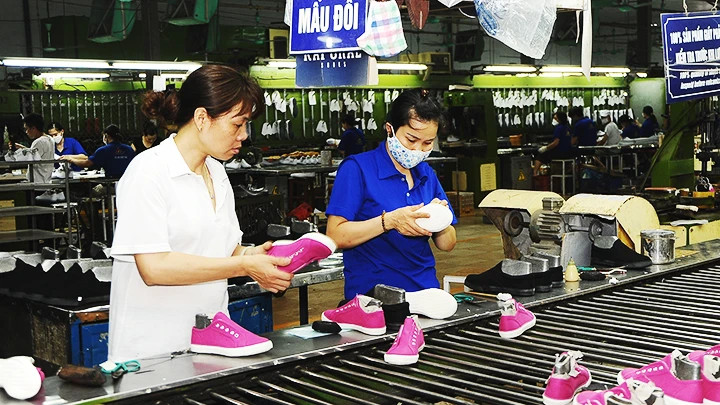 |
| Exporting enterprises need to restructure their operations, diversify markets, products, and supply chains. (Photo: Nam Hai) |
Businesses need more support
Beyond business efforts, Vitas representatives stressed that the government should implement and maintain support policies to reduce costs for businesses, such as lowering VAT, import duties, land taxes, and corporate income taxes. Banks should also cut interest rates, defer debts, and maintain current credit classifications for businesses.
In the long term, Ta Hoang Linh, Director of the Foreign Market Department at the Ministry of Industry and Trade, emphasised the need to enhance the added value and quality of export products to meet increasingly strict international standards and minimise the impact of tariff barriers.
According to Linh, Vietnam must restructure its economy, diversify markets, products, and supply chains to ensure rapid and sustainable development. He advised businesses to leverage existing advantages from 17 FTAs with over 60 countries and territories and more than 70 bilateral cooperation mechanisms.
Improving the business environment, reviewing tax policies, and supporting technological innovation are also necessary to maintain competitiveness.
Dr Can Van Luc, a member of the National Financial and Monetary Policy Advisory Council, stressed the importance for the government and businesses to develop appropriate response plans. It is crucial to remain calm but not complacent, but not overly pessimistic either, because this is a global issue, not unique to Vietnam. Countries that stay calm, proactive, and smart will successfully weather this major shock.
According to Dr Nguyen Si Dung, former Deputy Head of the National Assembly Office, for sustainable development, Vietnam must be ready to cooperate with the US in strictly addressing trade fraud, intellectual property violations, and origin evasion if any. These are not state-sanctioned actions but individual misconduct that must be eliminated to maintain a fair trade environment, not only for bilateral relations but also for national reputation and global market trust.
Dung also expressed confidence that goodwill, trust, and mutual respect remain the most important foundations for overcoming disagreements. Trade differences can be negotiated and resolved as long as both sides aim for a fair, cooperative, and responsible global value chain.
On the evening of April 7, Prime Minister Pham Minh Chinh chaired a conference with ministries, agencies, overseas Vietnamese representatives, associations, and businesses to proactively adapt to the new international trade landscape.
The prime minister suggested further studies on policies to support businesses, including reviewing tax, fee, and levy policies; lowering interest rates; sacrificing some profit margins; and allocating a support package for the wood and seafood sectors by enhancing current incentives.
He also called for a science-technology and innovation support package, studies on tax exemptions related to dependents, addressing issues with product origin affecting international commitments, and strengthening intellectual property rights protection.
The response should be comprehensive and synchronised, with both short and long-term solutions, spanning tariff and non-tariff measures, and covering political, diplomatic, economic, investment, trade, and national security dimensions.
